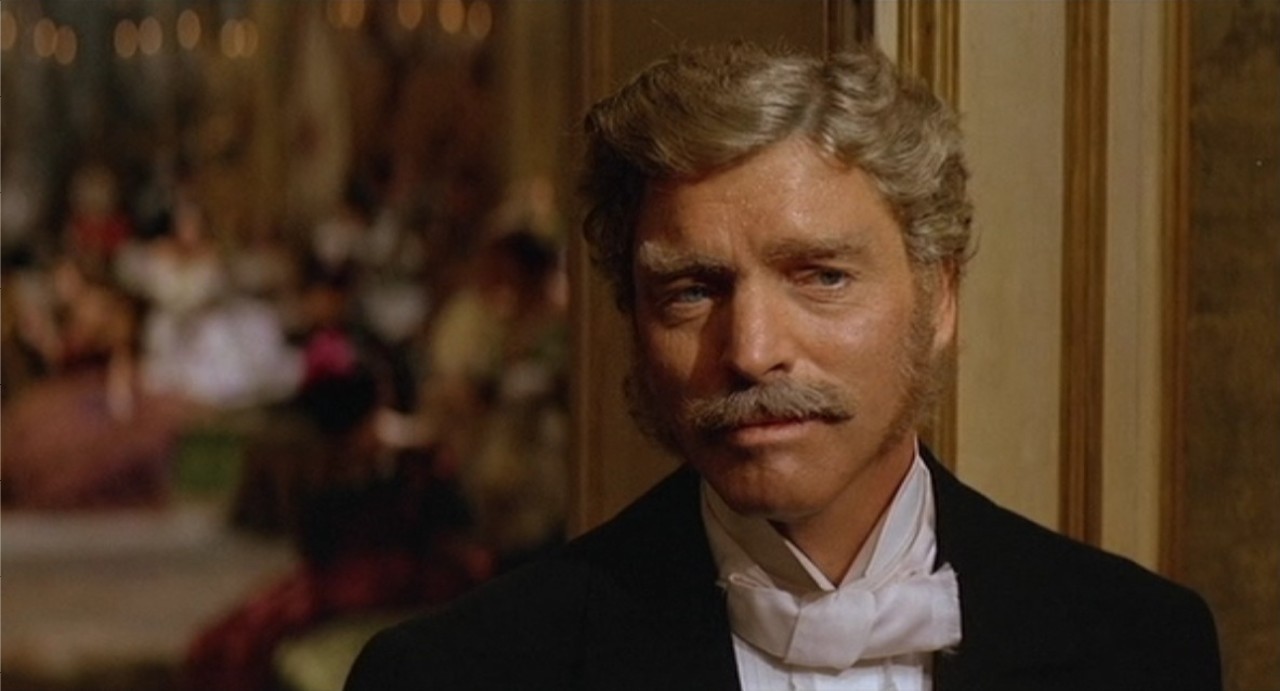
The history of storytelling is a riveting tale as old as civilization itself. From the earliest cave drawings to the screens we stare at today, sharing stories has been an essential element of human development. But while the vehicles of the narrative have changed drastically, the intent remains the same: through the use of a communicative medium, people can relate to and learn from each other by way of common experiences.
Some would argue that the evolution of storytelling reached its pinnacle in the form of written literature, facilitated by the invention of the printing press. Whether in biographical or fictional form, literature has proven its power to spark our imaginations and shape our choices. The written word has altered the destinies of nations and individuals, and inspired billions to both worship and war.
The medium of film as a storytelling device is a powerful, but still relatively new one. From the earliest days of cinema, works of literature have been adapted with varying degrees of success, and it’s clear by now that this was no passing fad.
The experience of seeing a beloved book portrayed on screen is disdained by some, and eagerly anticipated by others. But whether you believe that a movie adaption robs the story of its imaginative thrill or gives a fresh face to beloved concepts and characters, there’s no arguing that some cinematic efforts have succeeded better than others. Here are 10 Great Movies Adapted From Literary Masterpieces.
1. The Idiot
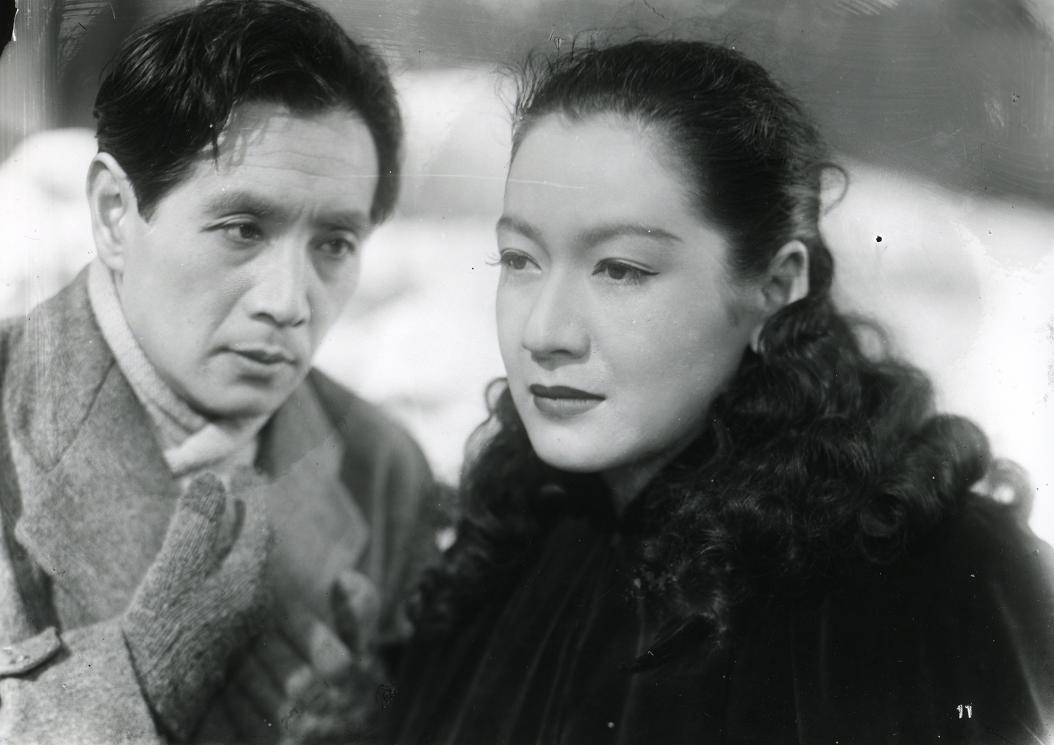
It seems fitting that Akira Kurosawa loved the writing of Fyodor Dostoevsky. These two kindred souls of troubled but explosive genius produced some of the most iconic works of art in their chosen field, and directly crossed paths at The Idiot.
A quote from Kurosawa seems the most effective way to describe the background of this movie: “Of all my films, people wrote to me most about this one… …I had wanted to make The Idiot long before Rashomon. Since I was little I’ve liked Russian literature, but I find that I like Dostoevsky the best and had long thought that this book would make a wonderful film. He is still my favorite author, and he is the one — I still think — who writes most honestly about human existence.”
One of the great tragedies in cinematic history is that we do not have the complete version of Akira Kurosawa’s epic film. The victim of a heartless 100-minute studio cut which enraged its creator, what remains of The Idiot is still a masterpiece which we should be thankful to have. Readers who admire the novel and its cast will be delighted to see these beloved characters portrayed on film by top-tier talent. Toshiro Mifune and Masayuki Mori breathe new life into the roles of Rogózhin and Prince Myshkin with respect and fidelity.
Possessing some knowledge of Dostoevsky’s novel is recommended to those who approach the film – because so many scenes were cut from the final product, fans are able supply these elements from memory. But newcomers to The Idiot can also embrace Kurosawa’s magnificent movie with confidence and prepare for a deeply moving experience.
2. Tess
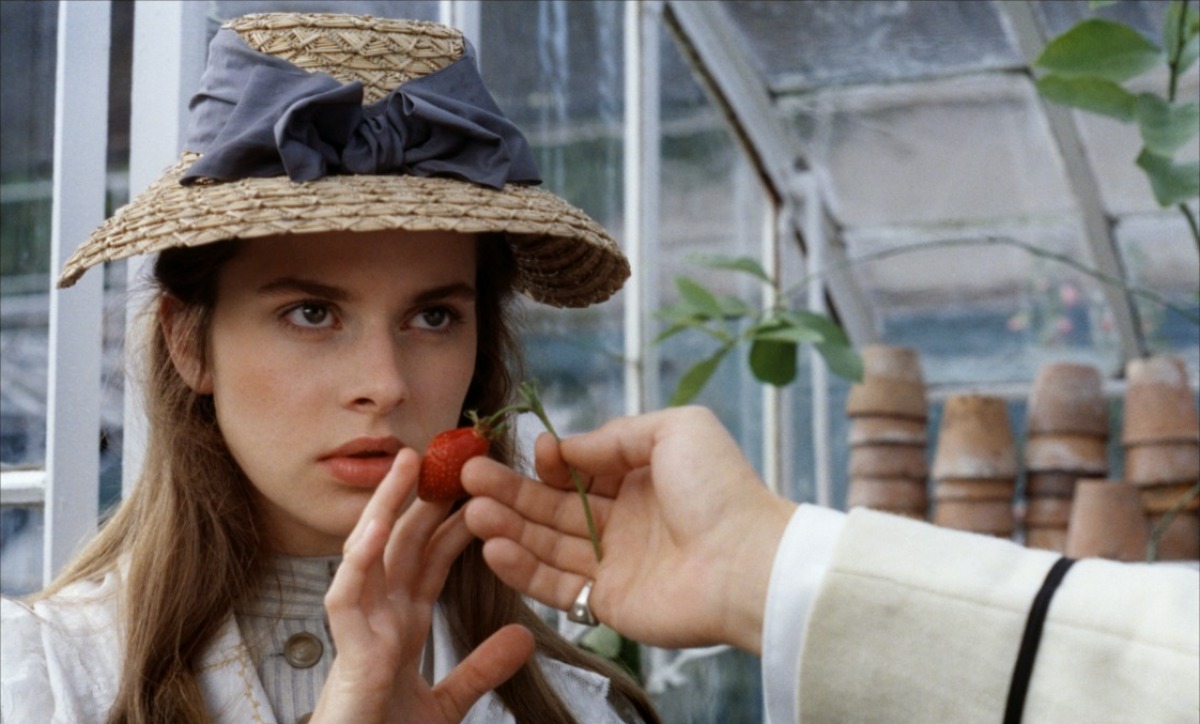
Few adaptions have bridged the gap between page and screen as seamlessly as Roman Polanski’s Tess. From start to finish, the content and tone of Thomas Hardy’s great novel is admirably represented.
Tess is one of literature’s greatest tragic heroines, and Nastassja Kinski plays her with the meek passivity of nature which sets Tess up for many heartbreaks. The camerawork serves the spirit of the story, often watching passively from a distance – perhaps representing for us the viewpoint of a god who sees what’s happening, but does not intervene.
It’s clear throughout that the film is not there to draw attention to itself, but is rather honoring the ability of this literary masterpiece to hold our interest on its own. This was a wise decision, because Tess is an inherently sympathetic character, and the novel was fashioned with the intelligence and the substance to transcend the restrictions of any storytelling device. Few who love Tess the book have walked away disappointed from Tess the film, and for this reason it is one of the great literary adaptions.
3. The Gospel According to Matthew
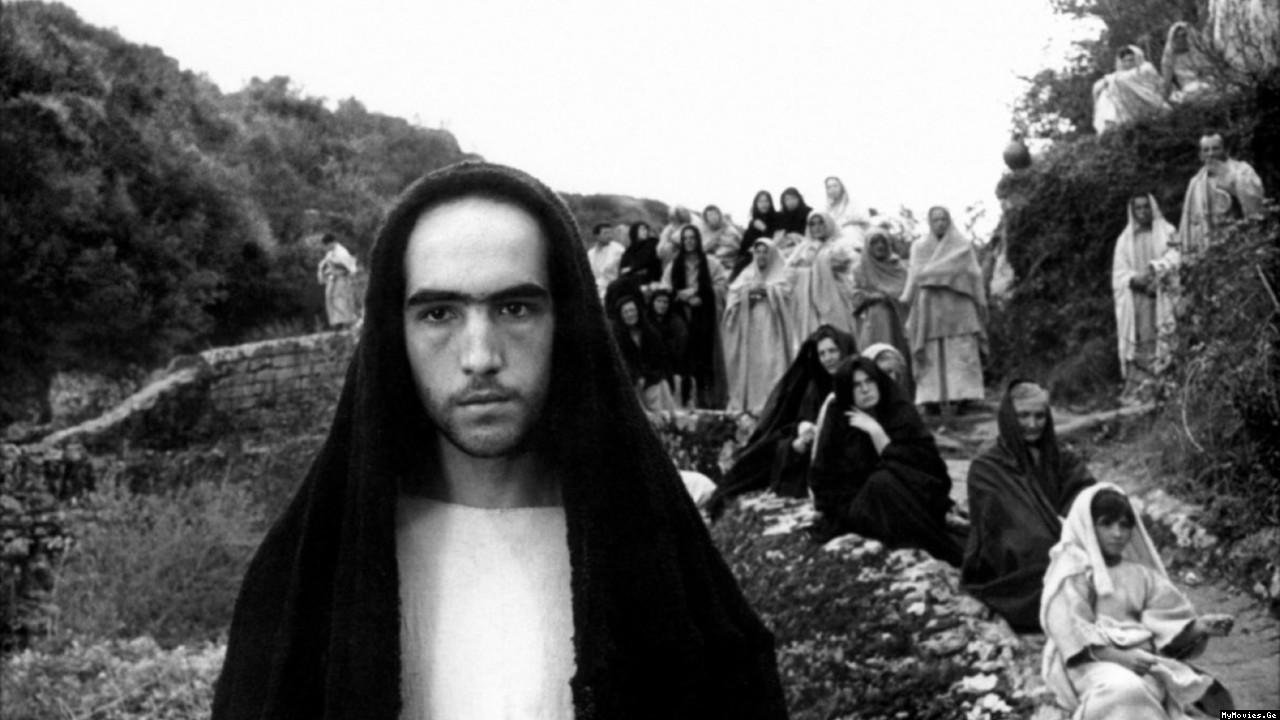
Pier Paolo Pasolini was an unlikely choice to direct what many believe to be the greatest film on the life of Jesus. His reputation was not one of devotion, and yet he pursued this project with passion, dedicating his masterpiece to Pope John XXIII. Of the four books most widely esteemed about the life of Jesus, Pasolini chose to adapt The Gospel According To Matthew intentionally, reportedly explaining that “John was too mystical, Mark too vulgar, and Luke too sentimental.”
Pasolini presented Matthew’s gospel with a reverence and realism rarely matched in the history of biblical movies. The film’s dialogue was transported directly from the original book, with Pasolini noting that “images could never reach the poetic heights of the text.” The film rejects romanticized portrayals and is starkly unsentimental, echoing elements of the Italian neorealistic style. The cast was filled mostly with non-professional actors, and the man chosen to play Jesus was a Spanish 19-year-old economics student.
Choices like these make the story immediately accessible and make its characters and events imminently believable. An eclectic soundtrack featuring sacred songs ranging from Bach to Odetta lifts the viewer into the spirit of the story and keeps our souls well off the ground throughout. For all these reasons and more, The Gospel According to Matthew is a landmark adaption unlike any other.
4. Wise Blood
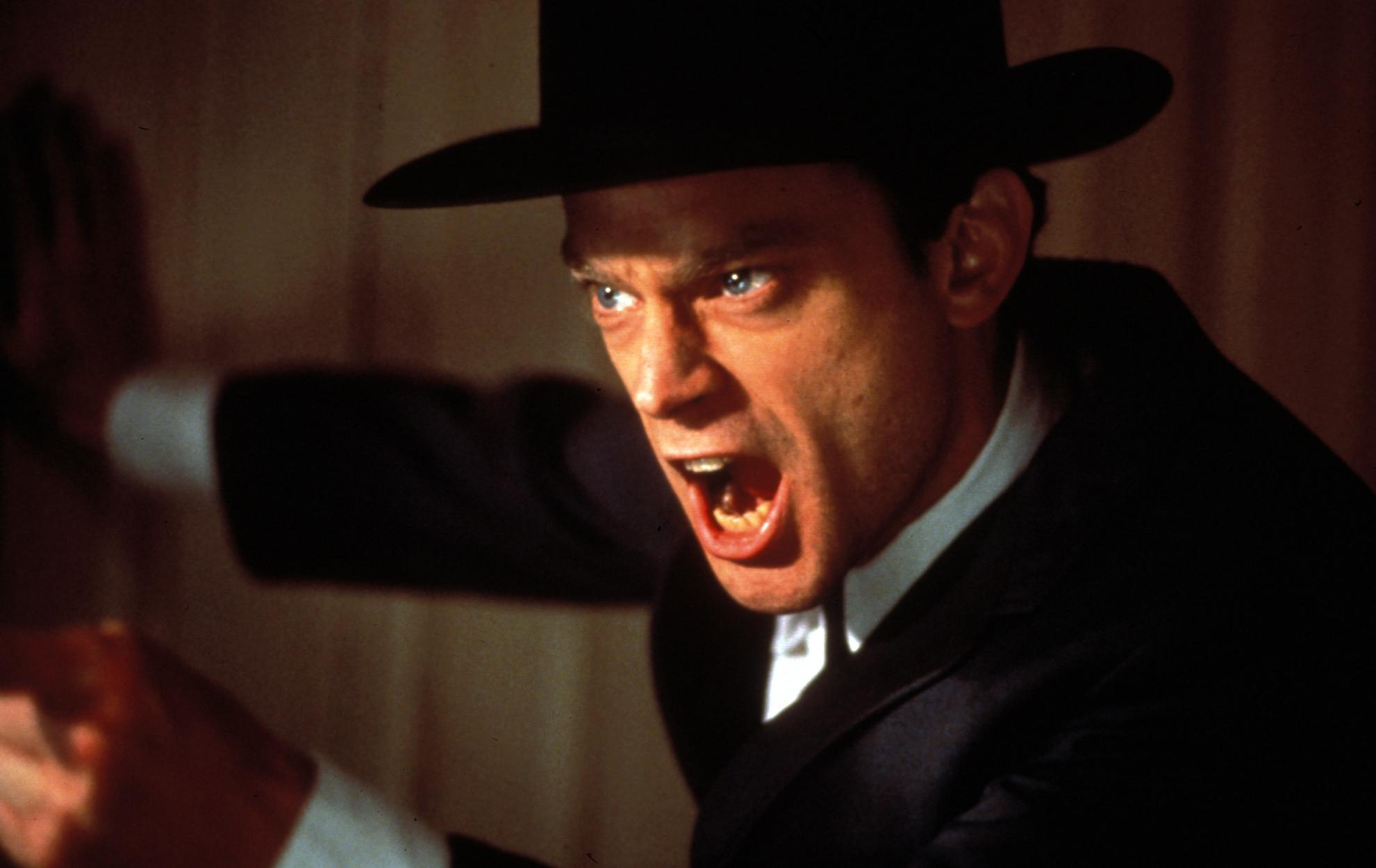
Translating the eccentric, sometimes bizarre elements of Flannery O’Connor’s Southern Gothic writing onto the big screen is bound to be a Herculean task. It’s a task not frequently undertaken for this reason, but John Huston showed us that it could be done successfully with his 1979 film Wise Blood.
O’Connor’s novel was a masterpiece of the grotesque – the “comically or repulsively ugly or distorted” – in both its characters and its setting. Even though it featured a shrunken mummy and a gorilla costume on the loose, some of Wise Blood’s human characters are even more outlandish; yet, Huston’s film hits all the right notes and reaches the emotional heart of O’Connor’s writing. That emotional core was often the subject of faith, which she explored consistently throughout her career.
In this story, the topic of religion is examined through the character studies of two extreme evangelists. One is an earnest young man, played by Brad Dourif, who has found an unshakeable belief by means of the loss of his faith, and is out to convert the world.
The other is an experienced con man, portrayed by Harry Dean Stanton, who wants to bring the young preacher into his own faithless fold. Huston’s film wonderfully mixes all the strange ingredients of Wise Blood, and touches the sublime in spite of its chaotic foundation.
5. The Trial

How could anyone effectively bring the writing of Kafka to the screen? Who could ever find a way to translate the bewildering and irreplaceable sense of absurdity that comes from reading The Trial? Good dialogue and effective acting would be crucial, but a keen and creative visual sensibility would be the most important cinematic tool to represent Kafka. Thankfully, the brilliant Orson Welles took on the task in 1962, and directed what he considered to be his best film, The Trial.
Welles was allowed full creative control over The Trial, resulting in a truly faithful presentation of an often difficult piece of literature. The screenplay and cinematography both convey the waking nightmare of Kafka’s world, making no excuses for its absurdity or lack of logical coherence. A haunting, mournful soundtrack accompanies this enigma of a film that feels half horror and half black comedy.
Anthony Perkins hesitatingly stumbles his way through his lines and lead performance as only he can. His character feels like an adult version of Alice in Wonderland as characters, settings, and even door sizes morph around him. Jeanne Moreau, Romy Schneider, and Orson Welles himself fill out the rest of the unforgettable cast of this classic adaption. While familiarity with Kafka’s novel is a recommended aid to viewing this surreal film, the artistry of Orson Welles will be an unforgettable experience for anyone.